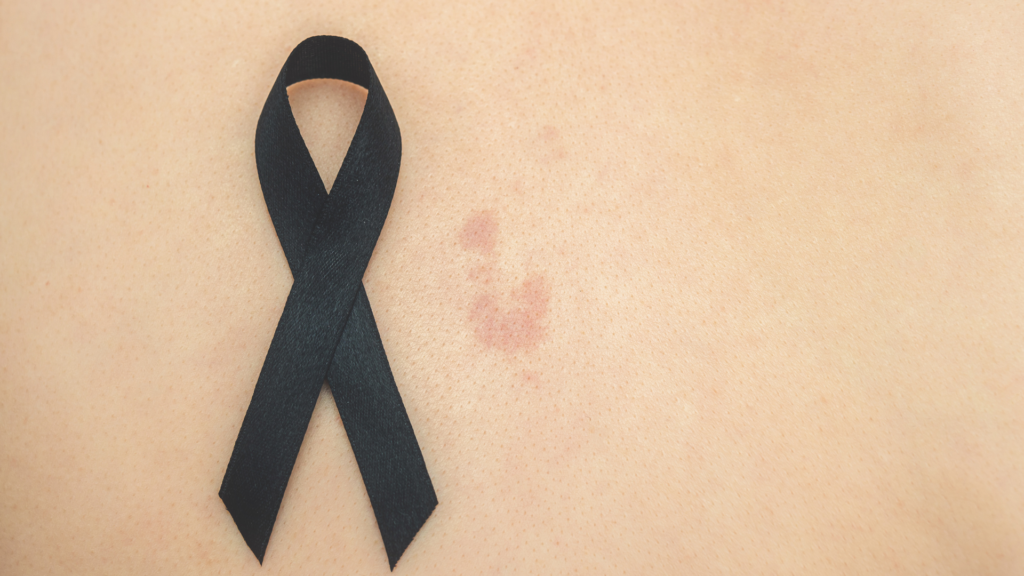Skin cancer is a serious issue
Beautiful, glowing skin is something we all strive for, but it’s important to remember that our skin also requires protection and care. Skin cancer is a serious issue that affects millions of people worldwide. In fact, it is the most common type of cancer globally, with more cases each year than breast, lung, prostate, and colon cancer combined, according to the World Health Organization. Despite skin cancer being the most common type of cancer, many people are unaware of the risks and preventative measures that can be taken. This is why education and awareness about skin cancer are so important. In this article, we’ll explore five important facts about skin cancer, including its causes, prevention, early detection, and treatment options. By understanding more about this condition, we can take better care of our skin and protect ourselves from its harmful effects.
Fact 1: Skin cancer is the most common type of cancer in the world
Skin cancer is the most common type of cancer in the world. According to the World Health Organization (WHO), there are more cases of skin cancer each year than breast, lung, prostate, and colon cancer combined.
Skin cancer is a serious health concern worldwide, with an estimated 5 million new cases diagnosed each year. The incidence of skin cancer is increasing globally, and it is estimated that one in five people will develop skin cancer in their lifetime. This underscores the importance of taking measures to prevent skin cancer and to detect it early when it is most treatable.
Fable 1
Only fair-skinned people can get skin cancer.
This statement is not true. Although people with fair skin are at a higher risk of developing skin cancer, anyone can get it regardless of their skin color.

Fact 2: There are 3 main types of skin cancer
There are three main types of skin cancer: basal cell carcinoma, squamous cell carcinoma, and melanoma. Basal cell carcinoma and squamous cell carcinoma are more common and usually not life-threatening. Melanoma, on the other hand, is a more aggressive type of skin cancer that can spread quickly to other parts of the body. Early detection and treatment of melanoma are critical for a good prognosis.
Melanoma is a type of skin cancer that develops in melanocytes, the pigment-producing cells in the skin. It is one of the most serious types of skin cancer and can spread rapidly to other parts of the body, including the lymph nodes, lungs, liver, bones, and brain.
The main cause of melanoma is exposure to ultraviolet (UV) radiation from the sun or tanning beds. People with fair skin, red or blonde hair, blue or green eyes, and a history of sunburns or excessive sun exposure are at a higher risk of developing melanoma. Other risk factors include having a family history of melanoma, having many moles or unusual moles, and a weakened immune system.
The most common sign of melanoma is a new or changing mole or a spot on the skin. It may have an irregular shape, uneven color, and an irregular border. It may also be larger than a pencil eraser. Other symptoms may include itching, bleeding, or oozing of the mole or skin lesion.
Fable 2
Skin cancer only occurs on sun-exposed areas of the body.
Definitely not true. While sun exposure is a major risk factor for developing skin cancer, it can occur on any part of the body, even those that are not usually exposed to the sun. Skin cancer can develop on the soles of the feet, under the nails, in the genital area, and inside the mouth, among other places.
Fact 3: Exposure to UV radiation is the main cause of skin cancer
The main cause of skin cancer is exposure to ultraviolet (UV) radiation from the sun or tanning beds. UV radiation damages the DNA in skin cells, leading to mutations that can result in cancer.
Exposure to UV radiation is the primary risk factor for developing skin cancer. UV radiation damages the DNA in skin cells, which can lead to mutations and the development of cancer. It is important to take measures to protect your skin from UV radiation, including wearing protective clothing and sunscreen and avoiding excessive sun exposure. And, of course, don’t forget to use our RoseKin products to protect your skin even better.
This is because exposure to UV radiation from the sun or tanning beds is the main cause of most types of skin cancer, including basal cell carcinoma, squamous cell carcinoma, and melanoma. UV radiation damages the DNA in skin cells, which can lead to the development of cancerous cells.
To reduce the risk of developing skin cancer, it is important to protect these areas of the skin from UV radiation. This can be done by wearing protective clothing, such as long-sleeved shirts, pants, and wide-brimmed hats, and using sunscreen with an SPF of at least 30 on exposed skin. It is also important to seek shade during peak hours of UV radiation, usually between 10 am and 4 pm, and avoid indoor tanning.
Regular skin exams are also important for early detection of skin cancer. Any new or changing moles or spots on the skin should be checked by a healthcare professional. Early detection and treatment of skin cancer can improve the chances of a successful outcome.
Fable 3
Wearing sunscreen can cause vitamin D deficiency.
This statement is not entirely true. While wearing sunscreen can reduce the amount of vitamin D that is produced by the body, it is still possible to get enough vitamin D through other sources, such as food or supplements. It is also important to balance the benefits of protecting the skin from UV damage with the risks of developing skin cancer. Read more in our blog about vitamin D.

Fact 4: The early signs of skin cancer can be subtle
The early signs of skin cancer include changes in the size, shape, or color of a mole or other skin growth, as well as the appearance of a new growth.
The early signs of skin cancer can be subtle and may include changes in the size, shape, or color of a mole or other skin growth, as well as the appearance of a new growth. It is important to have any suspicious skin growth.
Regular skin checks and early detection of skin cancer are crucial for successful treatment and a good prognosis. It is recommended that adults get a full-body skin exam by a dermatologist annually, especially if they are at a higher risk of developing skin cancer. People who have a family history of skin cancer or who have had significant sun exposure in the past may be at a higher risk of developing skin cancer and should take extra precautions to protect their skin.
Fable 4
Skin cancer is not a serious health concern.
This statement is not true. Skin cancer can be a serious health concern, and some forms of skin cancer, such as melanoma, can be life-threatening if not detected and treated early.

Fact 5: Skin cancer is a significant health concern in Switzerland
In Switzerland, skin cancer is a significant health concern. According to the Swiss Cancer League, skin cancer is the most common type of cancer in Switzerland, accounting for 38% of all new cancer cases in 2020.
Basal cell carcinoma and squamous cell carcinoma are the most common types of skin cancer in Switzerland, and they are usually less aggressive than melanoma. However, melanoma incidence is also on the rise in Switzerland, and it is the deadliest type of skin cancer.
Switzerland has a high incidence of skin cancer due to its high altitude and sunny climate. The incidence of skin cancer in Switzerland is higher than in other European countries at similar latitudes, such as Germany or the United Kingdom.
Fable 5
Once treated, skin cancer cannot return.
This statement is not entirely true. While skin cancer can be successfully treated and removed, there is still a risk of recurrence. It is important to continue to monitor the skin and attend regular follow-up appointments with a dermatologist after treatment to detect any potential recurrence.

A summary of the 5 facts about skin cancer
In conclusion, protecting your skin from the harmful effects of skin cancer is of utmost importance. By understanding the facts about this prevalent condition, we can take proactive steps to care for our skin and reduce the risk of skin cancer. Remember, skin cancer can affect anyone, regardless of skin color or sun exposure history. It is crucial to be aware of the three main types of skin cancer: basal cell carcinoma, squamous cell carcinoma, and melanoma, with melanoma being the most aggressive. UV radiation from the sun or tanning beds is the primary cause of skin cancer, making it essential to take preventive measures like wearing protective clothing, using sunscreen, and seeking shade. Early detection is key, so be vigilant about any changes in your skin and schedule regular check-ups with a dermatologist. Skin cancer is a serious health concern, and its recurrence is possible even after successful treatment. Therefore, continuous monitoring and follow-up care are vital. Let’s prioritize our skin health, raise awareness about skin cancer, and strive for beautiful and protected skin for a lifetime.
We would love to here from you and answer your questions you might have. Send us a message on Instagram we can’t wait to hear from you!
You only have 1 version of your skin – don’t forget to protect it as much as possible.
WHEN YOUR SKIN TELLS YOUR STORY, YOU DESERVE TO LOOK YOUTHFULL – PROTECT IT DAILY
#YOURSKINNEVERFORGETS
For more information about our SPF50+ products click here
Follow us on Instagram

